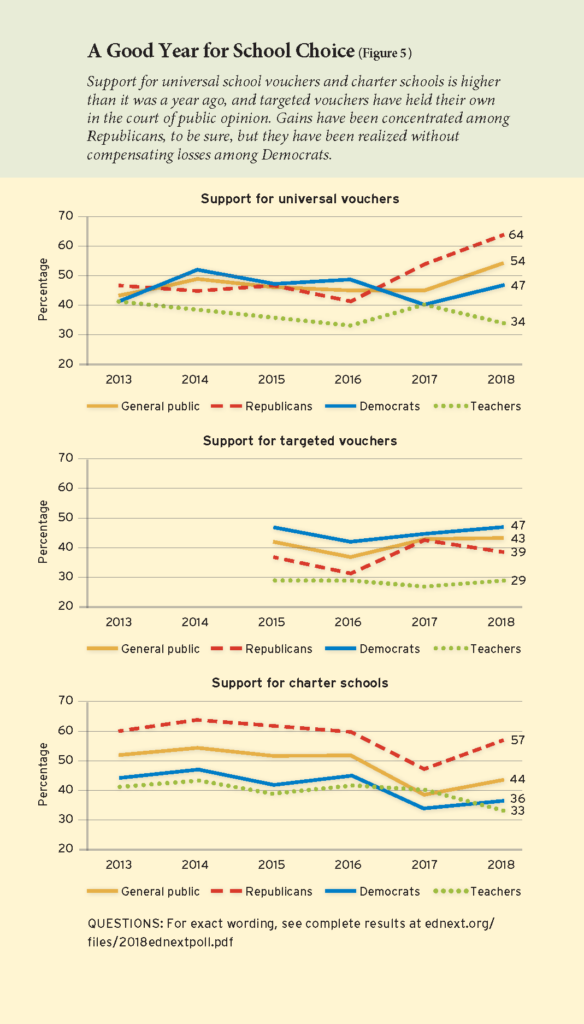
Public support for universal school vouchers has increased 9 percentage points to 54 percent in the last year, according to the 2018 Education Next annual survey of American public opinion on education. Meanwhile, opposition has fallen by 6 percentage points to 31 percent.
However, Martin West, one of the survey authors, cautioned against interpreting the increased support as a long-term trend since support has fluctuated over the years.
“What stands out to me is a variety of proposals for expanding parental choice in education that draw more support than opposition from the American public,” said West, professor of education at Harvard University and editor in chief of Education Next.
The survey was conducted by the Program on Education Policy and Governance at Harvard University. It polled 4,601 adults including an oversampling of blacks, teachers, parents and Hispanics.
The survey shows that even though support for universal vouchers has spiked, support for vouchers targeting low-income families has remained steady at just 43 percent. Tax credit scholarships drew wide support: a clear majority at 57 percent, like last year. The report argues the scholarships appeal to taxpayers because “the amount of money the state gives up in tax receipts is often less than the cost of educating a child in public school.”
The survey also found that those in favor of charter schools increased to 44 percent, whereas those opposed decreased 1 percentage point to 35 percent.
After remaining steady for four years, support for charter schools plummeted 13 percentage points in 2017. But this year, charter school support made a partial recovery of 5 percentage points.

“It does not appear that last year’s result was the start of a long-term trend,” said West.
Charter school support was strongest among Republicans. West speculated that the absence of a Democratic president supporting charter schools – Barack Obama had pledged to double the number of charter schools during his two terms – may have led to vocal criticism of those schools among members of the civil rights coalition.
Charter schools and tax credit scholarships are producing the most growth in school choice (Step Up For Students, which publishes this blog, administers the Florida Tax Credit Scholarship). But West said there is some polarization among party lines, with Republicans more likely to support choice programs.
However, he added, “a variety of proposals can draw plurality, or in some cases major support.”
West said the support for universal vouchers over the last year was driven primarily by an increase in support among Republicans, but it was not offset by any decline in support among Democrats. That’s likely a product of the strong support for these options by President Trump and Secretary of Education Betsy DeVos. Support for vouchers among Republicans has grown 10 percent to 64 percent. Democratic support, this year, has increased 7 percentage points to 47 percent.
Yet, according to West, in spite of the 7-percentage increase, the overall support among Democrats is lower than it was in 2014-15.


